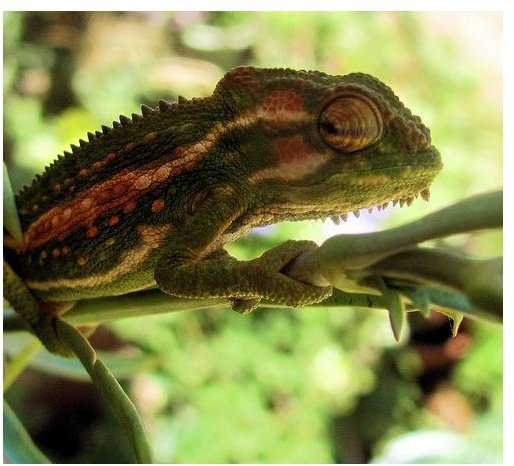Ecosystems Problems and Solutions: The Human Impact on Ecosystem
The Danger to Ecosystems
When talking in terms of ecosystems, problems and solutions, one does not realize how fragile ecosystems are until you witness firsthand the devastation humans are having on the environment. In a small town in South Africa in the nineteen eighties, it was common to see chameleons roaming around in the gardens of the residents. The wildlife was unique and exotic to South Africa. It was an everyday phenomenon to witness, first hand, the beauty of Africa.
With the changing environmental shifts due to industry and pollution, global warming and wanton abuse of resource management, things have changed. The same small town which once harbored these little creatures, in what we are slowly starting to realize as fragile ecosystem environments, we now find an absence of chameleons in the gardens.
The thing about ecosystems is that they are inherently fragile and intensely complicated. If you influence the smallest variable, then it changes the whole. This is why global warming is such a big issue, regardless of whether we created it or not. The simple truth being, ecosystems will change; however, if they change radically enough, our way of life will forever be affected. It is sad to think that future generations will not have the privilege of witnessing these little creatures as we have in our lifetime. You have to go to preservations to witness the wildlife that was once an everyday occurrence.
The problem is, where there was once a thriving ecosystem, it has slowly been replaced by poisons to the natural environment. Not only poisonous to the wildlife, but to humanity as well; whereas, sadly we are hurting ourselves in the process. There is now an open cast mine less than a few miles away from the urban area of that same small African town. Not only has it damaged the property of the residents through blasting, it has started to destroy the ecosystems in the area. Where some see profit margins, sadly others see disappearing ecosystems. The pollution has reached the point where some surrounding farms have had to start considering water purification in the future as the natural resources will be so polluted from the surrounding industry that the natural water will no longer be drinkable.
The concern is that ecosystems are slowly being destroyed. How many “developed” countries already have to buy their water bottled? If you have ever had the privilege of driving through the Kruger National Park, you would notice that the very soil changes within a few miles of separation. Even the insect life is completely different from one mile to another. When this beautiful Game Reserve is not despoiled with tins, plastic wrappers and cigarette butts from passing visitors, we realize how majestic our world really is. How we influence this world is in our hands. While we have the capacity to really start the process of healing these problems, at the moment it is a distant dream.
Our Part in the Solution
In spite of these problems, there are a few things that we can do to protect ecosystems. The first step in the solution is to become aware. The second step is analyzing how we can influence the laws governing pollution and ungoverned industrialization. You can make yourself visible to society regarding ecosystems. Small things like, reducing ones litter can also influence the structure. Basically, reduce, recycle and reuse that which we can. Cut down on carbon emissions wherever possible. Basically, learn to think Eco-friendly.
One’s carbon footprint is determined by many variables which we tend to overlook. Don’t just plant a tree, read about the ecosystem where you live, what thrives there and how to protect it. Is the plant alien doing more damage to the said ecosystem? We should be considering ourselves as guardians of this unique world we live in and yet we do more damage unconsciously than we realize.
Sadly, all that can be said is that the chameleons are gone from that small town. The generations of the future will never know the ecosystems we had the privilege of growing up with, unless we address these problems with positive solutions.
References
The Wellbeing Company, “Where have all the Chameleons Gone?”, https://www.sa-wellbeing.com/2011/03/where-have-all-the-chameleons-gone/
Image courtesy of vgh.media @ FlickR, https://www.flickr.com/photos/vgh-media/5370316657/sizes/m/in/photostream/
